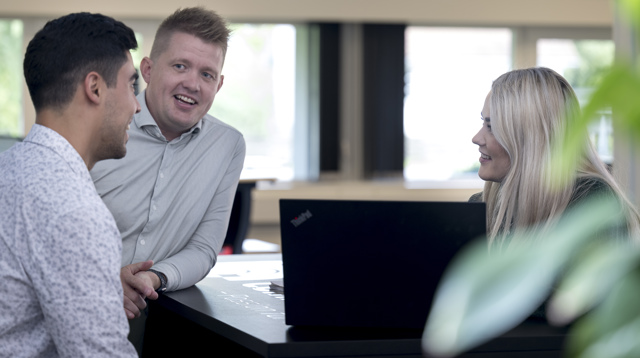What do you see as the most challenging aspect of a diverse working environment? What steps have you taken to meet this challenge?
“In connection to the challenges connected to a diverse working environment, I believe that the less work you put into the beginning of the hiring process, the more work you have to do later. Thus, it is very important for us to use a great deal of time in the initial interviews talking about this notion we have at Nordic Computer, that the diversity of the company is its biggest strength and for that diversity to persist, you must be able to cooperate, and you must have mutual respect.”
“If people do not buy into this, they are not going to get a job here. We believe there is no one above the collective, and it is teamwork that sets the top bar. So, because we spent a lot of time talking about that initially, we hope people will come to work with an open mind.”
“So, the most challenging aspect is setting the expectations straight at the beginning. You have to set the parameter straight from the beginning of what you expect from each other, and we always try to do that with the same level of ambition.”
What is your outlook for the future in connection to diversity and internationalization in Nordic Computer?
“Well, I hope that if we can continue to follow this trajectory of growth we have, then we can become increasingly international, have even more international employees, and thus have more diversity and offices in multiple countries. The test then will be how to transfer what we have here and what we have succeeded in doing here to other offices. Because we, of course, want to ensure people are heard.”
“People should feel a part of a team and have some kind of purpose. So, I guess when we become more international, we will keep focusing on diversity. Not just for the sake of diversity, but because it makes our company stronger.”



